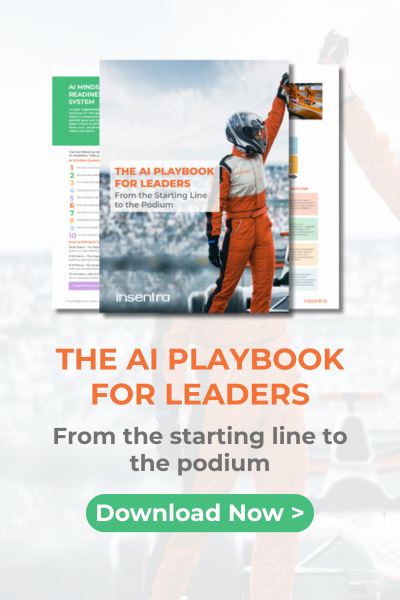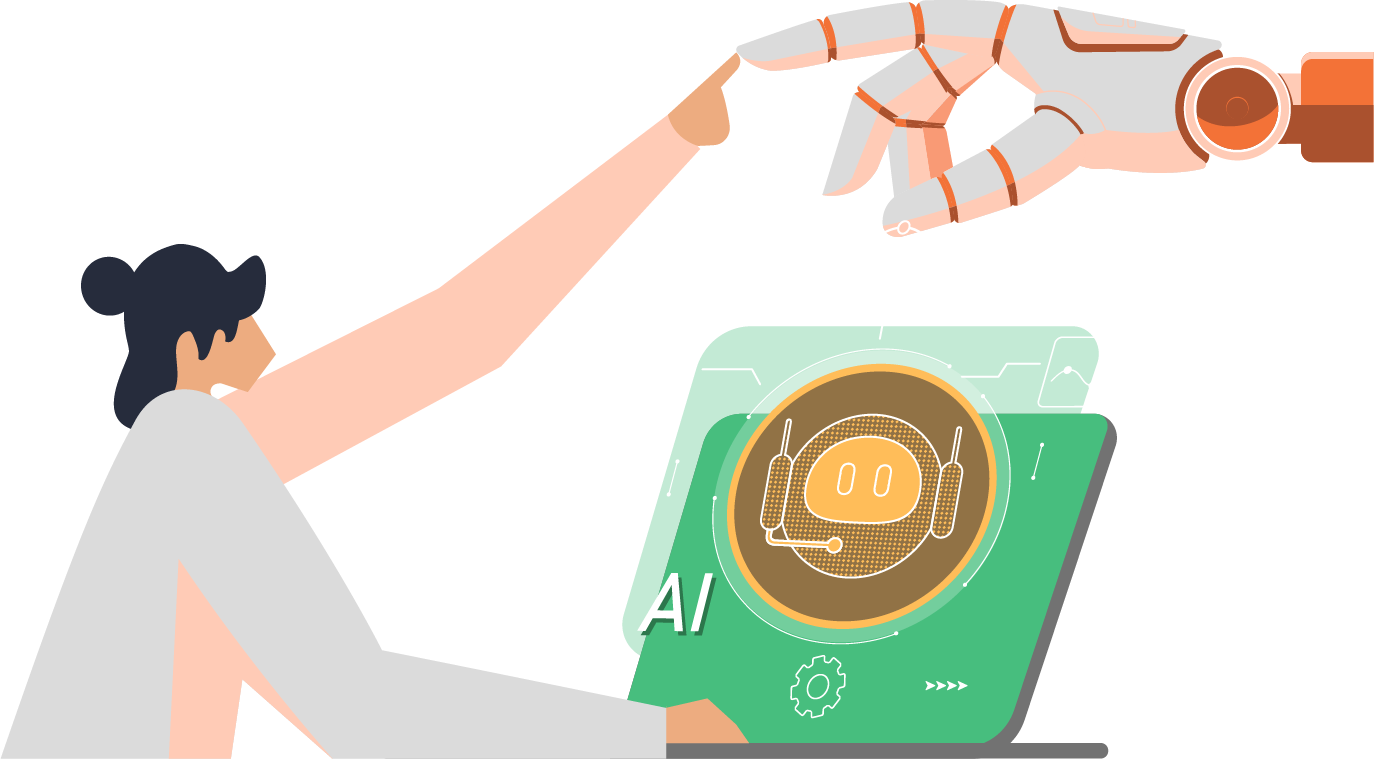AI is evolving fast, bringing exciting opportunities but also some pretty big challenges—especially when it comes to data privacy. With AI systems becoming more advanced, there’s a growing risk of personal information being compromised if we’re not careful. Think data breaches, unauthorised access, misuse of information, bias in decision-making, and a lack of transparency.
The problem is, AI is moving so quickly that regulations are struggling to keep up. This leaves businesses with little guidance on how to properly protect personal data. That’s why it’s so important to think about the ethical and legal sides of using AI. Companies need to focus on accountability, solid data protection measures, and strong cybersecurity to tackle these challenges head-on.
How Is AI Collecting and Using Personal Data?
AI is everywhere these days, collecting data from all kinds of places—and you might not even realise it. Here’s how it’s happening:
- Social Media: Every like, share, and comment you make on social platforms helps AI systems learn more about you. They use this info to personalise your experience and target you with ads.
- Facial Recognition Technology: This tech can do everything from unlocking your phone to beefing up security systems. But it’s also storing sensitive biometric data, which raises questions about who has access to it and how it’s being used.
- Location Tracking: GPS in apps and devices keeps tabs on where you are. It’s handy for things like maps and ride-sharing, but it also means there’s a detailed record of your movements.
- Voice Assistants: Devices like smart speakers and virtual assistants capture your voice commands to give you tailored responses. That voice data often gets stored in the cloud, which can be a privacy concern.
- Web Activity Monitoring: From your browsing habits to your shopping preferences, AI tracks it all to make your online experience more personalised. The downside? It’s not always clear how much data is being collected.
- Smart Devices: Everything from your fitness tracker to your smart fridge is gathering data to make your life easier. But these interconnected devices can also be vulnerable to cyberattacks.
What Are the Privacy Risks of AI?
With all the data AI collects, there are some serious privacy risks to think about:
- Unauthorised Access to Sensitive Data: Employees might mistakenly expose corporate information or personally identifiable information (PII) to AI tools. Many of these tools have data ingestion agreements that could compromise data security or violate compliance requirements, leaving your organization at risk.
- Data Leakage: Without proper safeguards, granting AI tools access to your data can result in unintentional data leaks. Ensuring the right protocols are in place is essential to prevent sensitive information from being mishandled or exposed.
- Unforeseen Consequences: AI can behave in ways its developers didn’t predict. For example, an AI managing transport logistics might unintentionally cause delays or accidents.
Changes to Regulation Related To AI
Despite the slow pace of AI policymaking, we still have made some strides in setting regulations to ensure the safe and ethical use of this fast-evolving technology. Below are a few examples:
| Guidance | Description |
| EU | |
| EU AI Act | The EU AI Act is a comprehensive legal framework aimed at ensuring the safe and ethical use of AI within the European Union. It classifies AI systems based on their risk levels: unacceptable risk (prohibited), high risk (strictly regulated), limited risk (subject to transparency obligations), and minimal risk (unregulated). The Act imposes most obligations on providers of high-risk AI systems, requiring them to ensure compliance with safety, transparency, and ethical standards. |
| Ethics Guidelines for Trustworthy AI | These guidelines, developed by the EU’s High-Level Expert Group on AI, outline seven key requirements for trustworthy AI: human agency and oversight, technical robustness and safety, privacy and data governance, transparency, diversity and non-discrimination, societal and environmental well-being, and accountability. The guidelines emphasise that AI should be lawful, ethical and robust throughout its lifecycle. |
| US | |
| AI Training Act | The AI Training Act mandates the Office of Management and Budget (OMB) to establish an AI training program for the acquisition workforce of federal agencies. The program aims to educate personnel on the capabilities and risks associated with AI, ensuring informed decision-making in AI procurement and deployment. The program must be updated every two years and include mechanisms for feedback and participation tracking. |
| National AI Initiative Act | This Act establishes the National AI Initiative to ensure the U.S. leads in AI research and development. It aims to coordinate AI activities across federal agencies, promote public-private partnerships and prepare the workforce for AI integration. The Act also emphasises the development of trustworthy AI systems and the enhancement of AI research infrastructure. |
| AI In Government Act | The AI In Government Act creates the AI Center of Excellence within the General Services Administration. The center’s role is to facilitate the adoption of AI technologies in the federal government, improve AI competency, and ensure the ethical use of AI. The Act also requires the Office of Management and Budget to issue guidelines for AI use in federal agencies, focusing on removing barriers and protecting civil liberties. |
| Australia | |
| AI Ethics Framework | Australia’s AI Ethics Framework provides guidelines for businesses and governments to responsibly design, develop, and implement AI. It emphasises principles such as fairness, transparency, accountability and privacy. The framework aims to position Australia as a leader in responsible and inclusive AI, ensuring that AI technologies benefit society while mitigating potential risks. |
How to Mitigate the Privacy Risks of AI
Companies can adopt these strategies and considerations to manage the privacy risks of AI.
- Data Minimisation
Collect only the data you genuinely need to operate your AI systems. By limiting the amount of data gathered, you reduce the potential damage if something goes wrong. This also aligns with privacy laws that emphasise minimising data collection to only what’s necessary.
- Encryption
Encrypt data during transmission and storage to add a strong layer of security. Even if cybercriminals intercept the data, encryption ensures it’s unreadable without the proper decryption keys. This practice protects sensitive information and boosts user confidence in your systems.
- Transparent Data Use Policies
Clearly outline how data is being collected, used, and stored. When users understand what’s happening with their information, they’re more likely to trust your organization. Transparency isn’t just a legal requirement—it’s a way to foster better relationships with your audience.
- Risk Management
Adopt a robust Information Security Management System (ISMS), such as ISO 27001, to identify and mitigate AI-related risks. Regular audits and updates ensure your organization stays protected against evolving threats.
- User Education
Train employees on the appropriate use of AI tools and the importance of safeguarding sensitive information. Clear guidelines reduce the risk of accidental data exposure and foster accountability.
Insentra’s Generative AI Sprint Series is a two-part workshop that teaches professionals how to productively and safely use tools like Copilot, ChatGPT and more. Book a Sprint training session with us to start upskilling your people in AI!
- Auditing and Monitoring AI Systems
Regularly evaluate your AI systems to identify vulnerabilities, biases, or any unintended behaviors. Continuous monitoring allows you to address issues early and ensures your systems remain reliable and fair. This proactive approach also helps meet regulatory standards.
- Ethical Considerations
Build fairness into your AI by training it on diverse datasets and implementing fairness metrics. This ensures that decisions made by the AI are equitable and don’t reinforce societal biases. Taking ethical considerations seriously can also prevent reputational damage and legal challenges.
- Opt-In and Opt-Out Mechanisms
Give users control over their data by allowing them to opt in or out of data collection. Providing these options shows respect for user preferences and helps build trust. It also aligns with privacy laws that prioritise user consent as a cornerstone of data protection.
Upholding Trust Above All
AI is changing the way we think about data privacy. While it offers incredible potential, it also comes with risks that we can’t ignore. By focusing on ethical practices, transparency, and robust safeguards, organizations can make the most of AI while keeping personal data safe.
Taking these steps isn’t just about compliance—it’s about building trust and creating a future where technology works for everyone.
To know more about data privacy and data governance, check out our other blog posts on Insentra Insights or reach out to us for inquiries.










